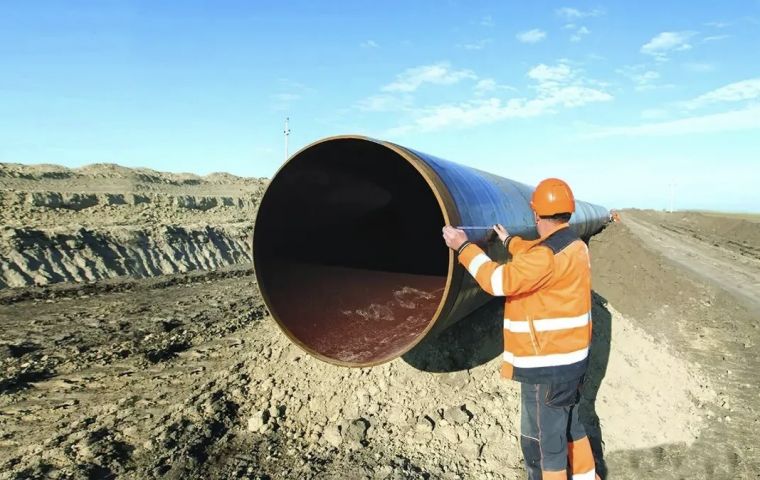MercoPress. South Atlantic News Agency
Argentine province of Rio Negro legislates in favor of oil pipeline
 Environmentalists are concerned that a spill might affect tourism and fishing in a world where hydrocarbons will cease to be a source of energy 20 years from now
Environmentalists are concerned that a spill might affect tourism and fishing in a world where hydrocarbons will cease to be a source of energy 20 years from now The Argentine province of Rio Negro has rephrased its hydrocarbons law so that oil may be transported through the pipelines to be built in the San Matías Gulf, despite warnings from environmentalist groups, it was reported Tuesday.
The new move would make it easier both to transport and also to export fuels. “The modification of the law will allow new investments, development and generation of jobs,” lawmaker Alejandro Palmieri tweeted about Provincial Law 3308 of Río Negro, which has provided for the protection of the bay since 1999 from any type of activity linked to hydrocarbon exploitation.
According to the new changes, “the installation of oil pipelines, gas pipelines or other pipelines for the transportation of hydrocarbons” has been allowed. According to environmentalist groups, the decision was in breach of international treaties to which Argentina adheres.
“We have no doubt that what was voted last week was regressive and unconstitutional for violating the Escazú agreement that is ratified by the Congress of the Nation. For this reason, we are analyzing the possibility of filing a legal action,” Enrique Viale, an environmental lawyer, told TN.
“The original law prohibited the installation of pipelines and the deposit of hydrocarbons. This part, about the placement of pipelines, is what was taken out in the new legislation. This enables the YPF project to move the crude oil from Vaca Muerta to Punta Colorada”, denounced local resident Suyhai Quilapan, who is also a member of the Multisectorial por el Golfo San Matías ecologist group.
Environmentalists are concerned that a spill might affect tourism and fishing. “These pipelines are going to cross the Negro River, which is our only water basin, the one that crosses the province. This is madness. In 20 years hydrocarbons will cease to be a source of energy,” he insisted.
(Source: TN)




Top Comments
Disclaimer & comment rulesCommenting for this story is now closed.
If you have a Facebook account, become a fan and comment on our Facebook Page!